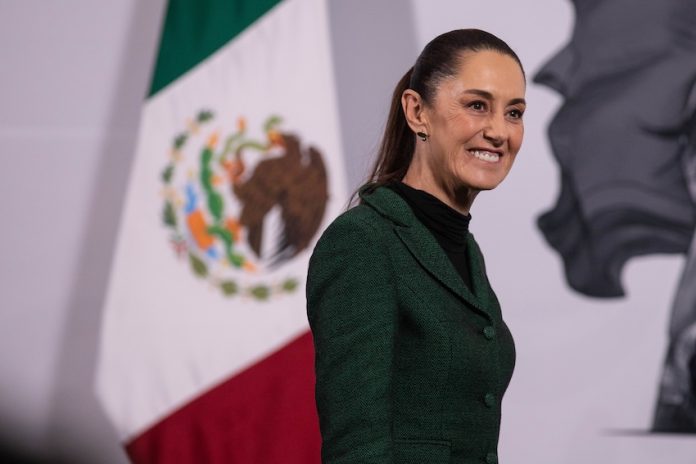The second Trump administration has ushered a frontal assault on the (neo)liberal global order. In what seems to be a break from the past, economic nationalism has attained a leading role in shaping the contours of a new order. Within weeks, practices that were formerly —at least in principle— repudiated are now being rehabilitated, among them trade wars and economic coercion as diplomatic leverage, territorial ambitions framed as “national security”, and open contempt for multilateral institutions. What makes this shift particularly dramatic is that this assault emerged from the United States, the core member of the challenged order.
Far from representing a radical departure, the arrival of President Trump to the White House has reinstated American historical preference for economic protectionism and unilateralism, replacing multilateral engagement with bilateral dealmaking.
In his recently published history of the relationship between global peace and free trade activism, Marc-William Palen uncovers the alternative visions of free trade idealists fundamentally opposed to war, which they saw as protectionism’s companion. Drawing heavily from his previous work, Palen traces American economic nationalism to Alexander Hamilton’s Treasury policy of tariffs and subsidies supporting industrialization. Hamilton’s plan —later labeled as the “American System”— evolved in the 19th century into a strategy of imperial territorial expansion, aimed at securing raw materials and controlling new markets for American capital goods.
Palen identifies Friedrich List as the key figure who infused economic nationalism with an imperial overtone. Unlike his contemporary Frenchman Michel Chevalier who advocated “informal imperialism” based on free trade, List promoted economic nationalist-protectionism as the cornerstone of what he termed “National System”. List’s “National System”, rather than Chevalier’s “informal imperialism”, became highly successful in the United States, where it justified not only domestic industrial protection but also the
subordination of other “tropical” countries to serve as resource providers for American industrial growth.
List’s framework characterized “tropical” countries as “indolent” and “uninstructed”, deeming them incapable of self-governance. Instead, they were destined to serve as permanent commodities suppliers to “temperate” industrial powers like the United States and Germany. As Brazilian historian Mauro Boianovsky shows, List’s ideas legitimized American imperial aspirations by naturalizing the “diffusion” of U.S. “population, institutions, civilization, and spirit” throughout Latin America.
The order advanced by the Trump administration represents a restoration rather than a departure from historical patterns. “Protectionism and reciprocity” had long been a Republican Party slogan before free trade entered American foreign policy overarching strategy in the 1930s. It is no surprise then that Trump’s brandishing of tariffs and territorial threats mirrors the “American System” championed by List and implemented by Presidents McKinley, Harding, and Hoover —who similarly paired economic nationalism with the colonial acquisition of territories like the Philippines, Guam, Puerto Rico, and Cuba.
Furthermore, as more details emerge on American interest in resource-rich territories from the Arctic to Ukraine to Africa, a future shaped by Trump’s version of Listian economic nationalism paired with resource extraction from subordinated regions becomes increasingly visible on the global horizon.
In this context, Mexico is uniquely positioned to navigate —perhaps even confront—America’s imperial ambitions fueled by economic nationalism. While right-wing politicians gain momentum across Latin America under the wings of what Greg Grandin describes as a veneer of “grassrootedness”, President Claudia Sheinbaum has an opportunity to transform her domestic popularity into international leadership by championing an alternative vision of free trade rooted in Mexico’s rich diplomatic tradition. Ultimately, as Sheinbaum recently remarked in massive rally called in response to Trump’s tariff announcement, Mexico has been the one country suffering territorial loses at the expense of American “swats”.
Mexico’s foreign policy is embedded into a Latin American formalistic-legalistic culture that views international law as a tool for protection, state-building, and development. In its approach to international law, Mexican foreign policy has advanced principles now familiar in international politics: sovereign equality, peaceful dispute resolutions, inclusivity within international organizations, and cooperative solidarity. Through this “republican internationalism”, Mexican leaders, alongside their Latin American colleagues, have historically denounced economic coercion and foreign interventions —two cornerstones of great power privilege— as ordering principles in international politics.
For example, Benito Juárez —Mexico’s first indigenous president and personal hero of Sheinbaum’s predecessor Andrés Manuel López Obrador— offered a “liberal rejoinder” to an ill-fated French intervention into Mexico. His goal was straightforward: by challenging the inequality inherent to international law, Juárez and his supporters sought to build a more liberal global order based on popular sovereignty, equality between nations, and non-intervention.
This liberal tradition of contesting the imbalance and unfairness ingrained in international politics continued throughout the 20th century…
Further Reading on E-International Relations




